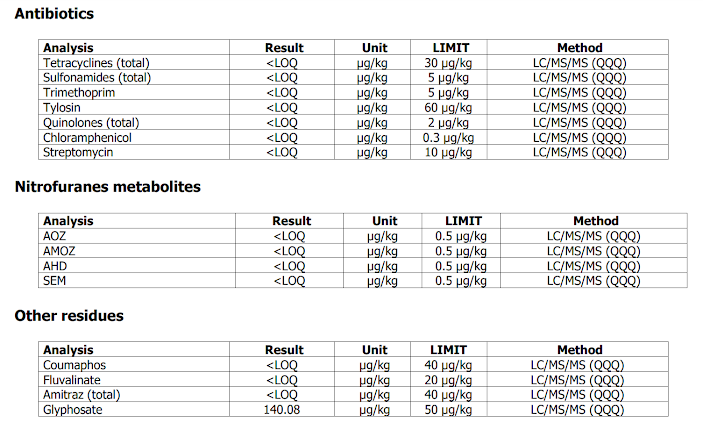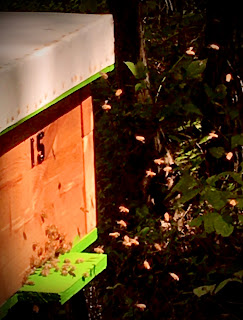Transparency in Food and Politics
Transparency is a hallmark of good government. Sunshine laws, campaign finance laws, open records, public meetings, and the Freedom of Information Act, are just a few of the ways we as Americans have sought to ensure that we know what is going on in our government at all levels and that elected and appointed officials are accountable to the American public. We seek transparency in campaign financing so we can see to whom and to which interests elected officials are beholden. This is a key factor in having working, democratic institutions, a necessity for ensuring that democracy will function best, a lifeline to the tax-paying public that wants to be sure its money is being well-spent by its governing officials.
Transparency, in general, makes it easier for good people to function and more difficult for bad people to function. Where transparency is weak or lacking, corruption usually flourishes and criminal behavior is unchecked. Even in the personal sphere, Christianity has always valued confession - before God and before one's fellow man - as a way of helping people not only to act in accordance with God's Laws, but as a means of reconciliation. South Africa's use of the "Truth Commissions" after Apartheid shed light on the abusive practices of that evil system and exposing the acts and actors of that system to the light of day served more to heal both perpetrators and victims than it did to bring people to justice and punish them for their misdeeds. South Africa's experience in this has shown that transparency worked and that it had an enormous healing effect on both individuals and society as it allowed reconciliation between people, races, and social groups to take place. In short, transparency is good
In matters of health, though, there is a very strong effort underway by industrial agriculture and the food industry to avoid transparency, to hamper transparency, and to engage in secret practices that prevent the general public from knowing what is in their food and how their food is produced. These companies oppose transparency for a good reason; transparency will only hurt them and turn people away from their products. Yet, is there a more important area in our collective life where we should have the maximum level of transparency than in our food and health? After all, what we eat and what our families eat determines how healthy we will be, how well our children grow up, it can have a huge impact on our individual and collective financial health. Rising rates of obesity, heart trouble, cancers and other debilitating diseases are all impacted by the food we eat, so is it not our most basic right not only as Americans but simply as human beings to know what we are eating?
Yet, the industrial agricultural system hides behind a wall of secrecy and obfuscation because they do not want you to know what is in your food. This system includes the large companies that control the commodity food chain "from farm to fork," the food processors that rely on cheap ingredients and mass marketing to add so-called "value" to the raw ingredients, and the large supermarket chains that cater to them. When the consumer buys a box of cereal and pays more for the cardboard box than the food inside, with the rest going for advertising, marketing, middlemen, stockholder value, and supermarket profits, it is clearly a system gone badly wrong.
Corporations oppose labeling of food products to show if there are GMO ingredients. They know that this level of transparency will hurt their bottom line because they are forcing ingredients on people they do not want. When given a choice, most people will opt for non-GMO foods. But this is old news. The latest outrage is a coordinated effort across many states to write laws, with the help of the American Legislative Exchange Council, an avowedly conservative, pro-business think tank that promotes legislation across the states to advance a political agenda that just so happens to be clearly pro-corporation. When it speaks of "limited government" and "free market," all terms that are fine in and of themselves, the effect is to keep government out of the regulatory business so corporations do not have to answer to a higher authority and to make the market an un-level playing field without referees so they can run roughshod over smaller competitors.
Two of the laws they promote show just how cozy they are with industrial agriculture and how they are promoting laws at the state-level that will ultimately benefit only the large, industrial farming operations. First is the "The Animal and Ecological Terrorism Act," that the ALEC just launched in March of 2013, while the second is the "Right to Farm Act," which shrouds industrial farming practices in law without allowing redress to organic farmers or the surrounding community. The "Right to Farm Act" will be the subject of a separate article.
Industrial farming practices, such as battery cages for chickens, de-beaking chicks, farrowing crates for hogs, confinement beef and pork production, and a host of other practices that result in needless cruelty to animals and require massive amounts of antibiotics and growth hormones in the animals, enormous chemical inputs for fruit and vegetable crops that often result in occupational injury to farm workers and their families, as well as the exploitation of illegal immigrants for cheap labor, would never stand up to public scrutiny if people know what is involved in the production of their food. The only way the public can learn about these unhealthy, cruel, and often inhuman and dehumanizing practices is through investigative journalism and civil society activists. Yet, this law, which has already passed several state legislatures, makes it a crime to film inside farm buildings in order to "defame the facility or its owner," which obviously means revealing the truth about what goes on in these unnatural environments. Apparently, truth is not a defense in such cases. Likewise, a person who makes such a film can face prison and fines.
Compare this to those farm operations where animals are fed on pasture and can free range over a large, outside area. Do you think those farms have any objection to a person stopping on the road and filming their animals munching contentedly on real grass, out in the open under the sun, and enjoying a natural life as nature intended? Do you think small, sustainable farmers selling free range chickens and organic eggs object to visitors seeing where their eggs come from and how they are raised? Of course not. In fact, this is one of the best selling points for organic producers - transparency.
Indeed, organic and sustainable farmers WELCOME public scrutiny. We are happy to show people what our farm practices are and how our animals are raised because we are proud of it! It is a selling point. Likewise, organic food producers would not mind labeling their food as being GMO-free because they are proud of that fact and see it as a strong selling point. Where there is a lack of transparency, there is bad news - it is as simple as that. If a farm does not welcome public scrutiny, then it is hiding something. If a food company does not want to label its food products truthfully, then it is hiding something. If at any point in the food chain from farm to fork there is a lack of transparency, then the customer is being deceived and lied to and the truth is being withheld. It is as simple as that. Laws such as this should be opposed at ever turn as they are antithetical to the principle of transparency and only serve to promote unhealthy, inhumane, and injurious practices both to animals and the customers who buy animal products.
Laws must not protect those who avoid transparency when there are issues of public trust at stake. This is as true of food production as it is of child molesters and abusers in our school, churches, and scout troops. We demand transparency in our public finances and we must demand it in our food. Nothing less than the health of us as individuals and our country as a whole is at stake.

